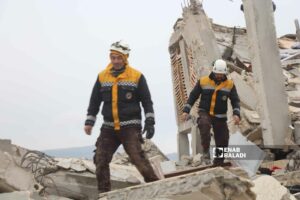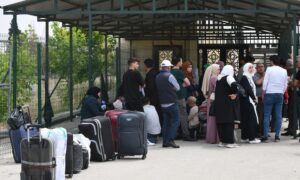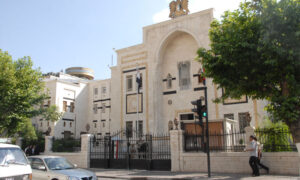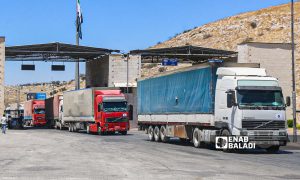International Romantic Court: Unable to provide justice, still we brag about it!
By Mansour Omari
Translated from Arabic by Enab Baladi
The United Nations commemorates the “International Day of the Victims of Enforced Disappearance” on 30 August each year, and defines it according to the “Declaration on the Protection of All Persons from Enforced Disappearance” that an enforced disappearance occurs when:
“persons are arrested, detained or abducted against their will or otherwise deprived of their liberty by officials of different branches or levels of Government, or by organized groups or private individuals acting on behalf of, or with the support, direct or indirect, consent or acquiescence of the Government, followed by a refusal to disclose the fate or whereabouts of the persons concerned or a refusal to acknowledge the deprivation of their liberty, which places such persons outside the protection of the law.”
This definition applies to the practices of the Syrian regime towards tens of thousands of the nation it represents in the United Nations, as recognized by the United Nations itself in its reports.
For example, in a UN Fact-Finding Mission on Syria 2013 report: “Without Impact: Enforced Disappearance in Syria,” it recognized that there were reasonable grounds to believe that enforced disappearances by government forces as part of large-scale and systematic attacks against the civilian population amount to a crime against humanity.
In its report in 2018: “Detention in the Syrian Arab Republic: A Way Forward“, the Independent International Commission of Inquiry on the Syrian Arab Republic reported that:
“Government forces and affiliated militias are arbitrarily or unlawfully detaining tens of thousands of individuals in official and makeshift detention centres throughout the Syrian Arab Republic. The vast majority are being held without due process and are not allowed access to legal representation or to their families. They endure various forms of brutal torture and subsist in severely inhumane conditions. Many have died in detention, while others have been summarily executed. The bodies of those who have died as a result of torture, neglect, inhumane conditions, or from executions are rarely returned to their families, who are also not notified about burials. As the number of detainees has grown, so too have the unofficial and secret places of detention these individuals are held in ”
This report described the crimes committed by the Syrian regime as follows: ” The Commission has meticulously documented the acts described above which amount to the crimes against humanity of extermination, murder, rape or other forms of sexual violence, torture, and imprisonment in the context of its widespread and systematic detentions (see A/HRC/31/CRP.1). They have also amounted to the war crimes of murder, cruel treatment, torture, rape, sexual violence, and outrages upon personal dignity (see A/HRC/31/CRP.1. para. 99).”
A few days ago, the Prosecutor of the International Criminal Court, Fatu Bensuda, issued a statement “on the International Day of the Victims of Enforced Disappearances”, in which she said:
“Enforced disappearances is a crime against humanity & falls within the jurisdiction of the ICC. The pain & suffering of the victims, their families and community should not go unnoticed. Justice & accountability matter.”
The statement notes that enforced disappearance falls within the jurisdiction of the International Criminal Court as a crime against humanity, so that its generality covers the Syrian case theoretically.
However, this is not true. The crimes in Syria does not fall within the jurisdiction of the International Criminal Court.
First: Syria is not a party to the treaty establishing the International Criminal Court.
Second: The Russian veto prevents the referral of the Syrian case to the International Criminal Court.
Syrian individuals and organizations, in addition to international organizations, have been exerting considerable efforts for years to try to find courts that have jurisdiction over this major crime in Syria, and to try to save the lives of those detained in the Syrian regime’s archipelago for enforced disappearance.
Is the statement of the Prosecutor a romantic expression of wishes? or does it indicate that she does not know what is happening in Syria? Or is it a general statement to participate in this Day, regardless of the accuracy of information provided by the President of the highest international court?
Is not it more down to earth for the Prosecutor of the International Criminal Court to go beyond the ivory tower that she seems to be living in through her romantic statement and to come to the ground to speak of the ineffectiveness of the Court being a causality of the Russian veto war against justice, that is blocking the work of the International Criminal Court and destroying the very cause of the court existence?
if you think the article contain wrong information or you have additional details Send Correction
-
Follow us :

















 A
A
A
A
A
A








 More Opinion
More Opinion